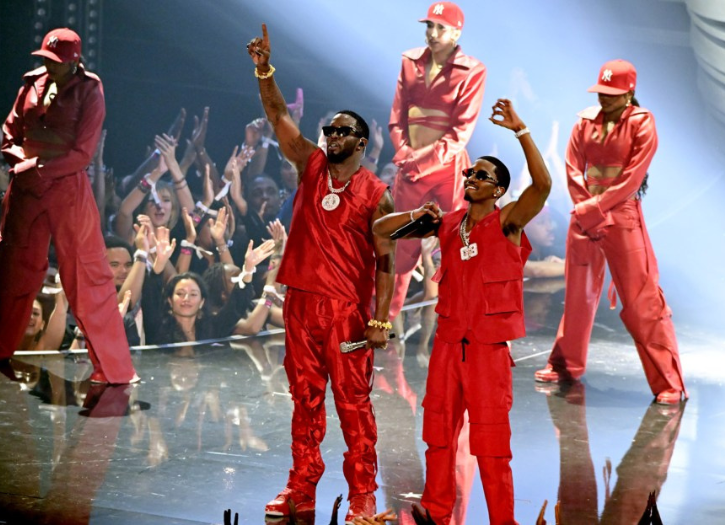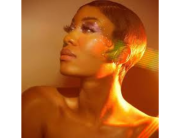The world of hip-hop is no stranger to controversy. But recent headlines involving two of the culture’s most prominent figures — Sean “Diddy” Combs and Jay-Z — have left fans and critics alike questioning whether this is merely a storm of isolated incidents or a larger, more calculated attack on hip hop’s elite.
With Combs facing arrest and Jay-Z battling serious allegations, the implications of these developments stretch beyond the individuals involved. They raise deeper questions about the treatment of powerful Black men in hip hop, the justice system’s role, and whether the culture itself is being targeted.
Arrest of “Diddy”: A Media Frenzy Unleashed
When news broke of Sean Combs’ arrest, it sent shockwaves through the entertainment industry. Combs, a music mogul and entrepreneur with a legacy spanning a decade, is no stranger to public scrutiny. However, this time it’s different. The charges against him have been accompanied by an almost immediate trial in the court of public opinion.
Pundits and fans have debated whether the timing of the arrest is suspicious, especially considering Combs’s recent moves in media and business. His growing influence in areas traditionally controlled by non-Black executives has led many to wonder if his power plays made him a target. As one fan put it on social media, “They’ll let you get rich, but the moment you try to gain power, they’ll find a way to bring you down.”
Allegations Against Jay-Z: The Shockwaves of a Disturbing Accusation
While Combs’s situation alone was enough to dominate headlines, the allegations against Jay-Z sent the hip hop world into a full-blown media frenzy. Reports surfaced of accusations that Jay-Z engaged in inappropriate conduct with a 13-year-old girl years ago. While the details are still murky and being investigated, the nature of the allegations is enough to stain anyone’s legacy, let alone someone of Jay-Z’s stature.
Jay-Z’s camp has been swift in dismissing the claims, labeling them as baseless attempts to tarnish his name. Some in the hip hop community have echoed these sentiments, suggesting that successful Black figures in the entertainment world are often targeted once they reach a certain level of wealth and influence. “If they can come for Hov, they can come for anybody,” one fan tweeted.
But others are taking a more cautious approach, advocating for a “wait and see” attitude. “Protect Black girls, no matter who it is,” wrote one activist on X (formerly Twitter), calling for a thorough investigation into the claims.
Coordinated Takedown or Coincidence?
The concurrent nature of these high-profile cases begs the question: Is hip hop under attack, or are these just coincidental events involving two of its wealthiest figures? Critics argue that these are simply isolated incidents that have no broader significance. But to those familiar with hip hop’s long-standing relationship with the justice system, this argument feels naive.
Historically, Black men in positions of power have often been the targets of legal scrutiny, and hip hop’s success story is no exception. Figures like Suge Knight, Tupac Shakur, and even 50 Cent have faced legal battles that some argue were more about control than justice. The music industry’s history of surveillance by law enforcement is well-documented. From the FBI’s monitoring of N.W.A. to ongoing investigations into rappers’ lyrics being used as criminal evidence, hip hop’s relationship with “the system” has always been fraught.
How Media Shapes the Narrative
There’s a common phrase in hip hop: “Control the narrative, or the narrative controls you.” This could not be more relevant than in the current moment. Media coverage of Combs and Jay-Z has been relentless, with clickbait headlines and sensationalized reporting shaping public perception before any facts have been fully confirmed.
Outlets are quick to frame Black men in power as villains, while similar accusations against figures in other industries often result in “alleged” or “accused” labels in the headlines. The power of media framing cannot be understated, as it primes audiences to assume guilt. This double standard has been a long-standing issue in hip hop and broader Black culture.
While some argue that media outlets are just “doing their job,” many believe that hip hop’s influence on global culture makes its figures prime targets for takedowns. Hip hop isn’t just music — it’s a multibillion-dollar industry spanning fashion, film, sports, and tech. With that kind of influence, it’s no wonder that its power players find themselves under a larger microscope.
What’s Next for Hip Hop’s Power Players?
Both Sean Combs and Jay-Z are known for being masters of reinvention. If they’ve learned anything from past controversies, it’s how to control the narrative and remain unshaken by public opinion. But this moment feels different.
With the rise of “cancel culture” and the speed at which social media judges, both men face an uphill battle to reclaim their public image. Unlike in the past, where time and silence could make the public forget, today’s audiences demand accountability and transparency.
Whether these cases are connected or not, one thing is clear: Hip hop’s most influential figures are no longer untouchable. The power they’ve built within their industry now makes them targets in the eyes of some. To those paying attention, it’s not just Sean Combs and Jay-Z under attack — it’s hip-hop culture as a whole.
Hip Hop’s Resilience Will Be Tested
So, is this a coordinated takedown of hip hop’s elite, or are Combs and Jay-Z simply victims of their own actions? The answer may lie somewhere in the middle. Hip hop has always been a space for rebellion, power, and cultural disruption. It’s also been a space where artists are vulnerable to both external and internal threats.
As fans, media, and industry insiders wait for the next development, one thing is clear: hip hop has always been resilient. If history has shown us anything, it’s that this culture doesn’t just survive — it thrives under pressure.
Written by: Barion McQueen
Photo Credit: Revolt







Add Comment